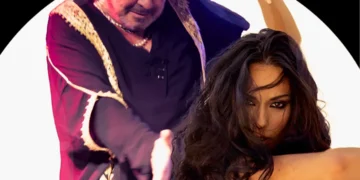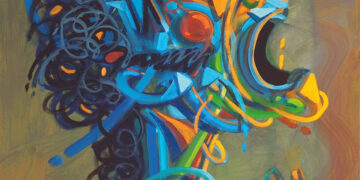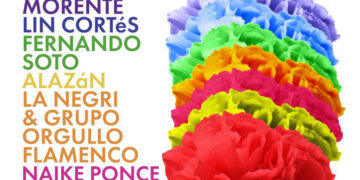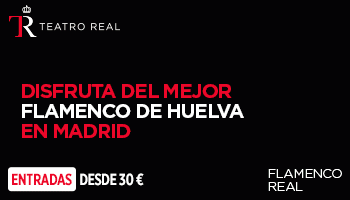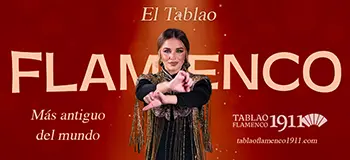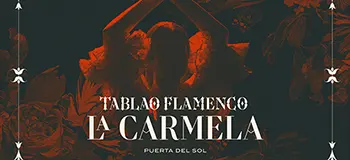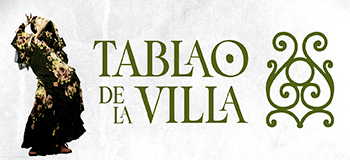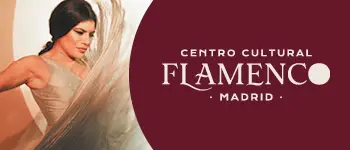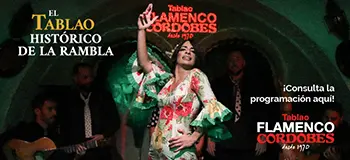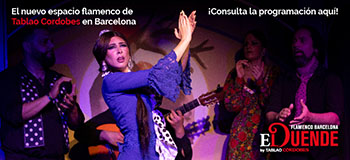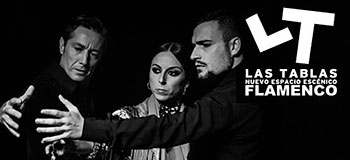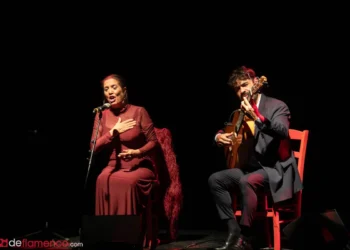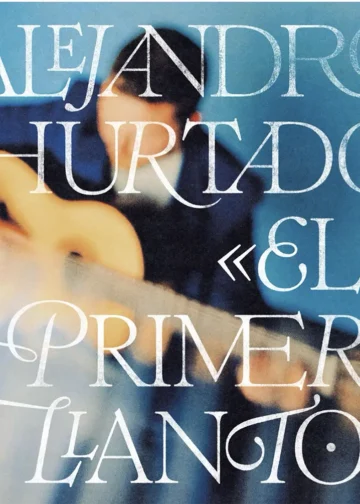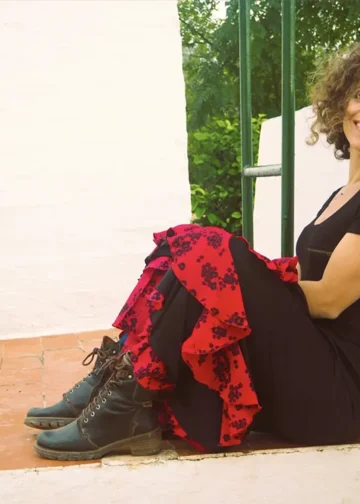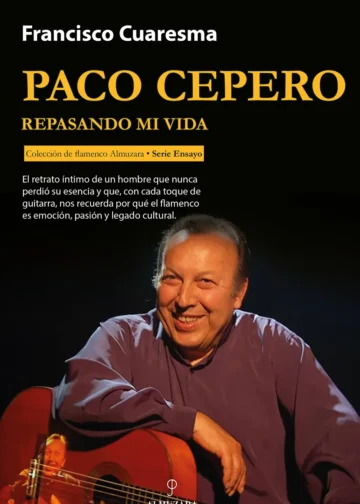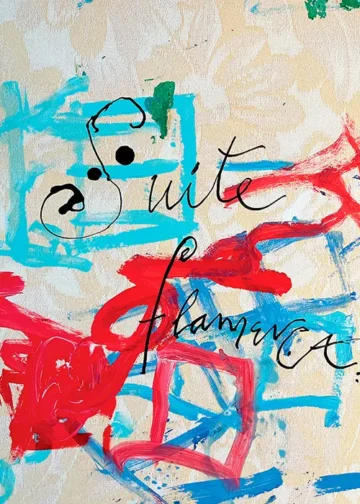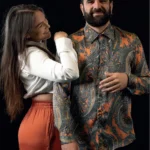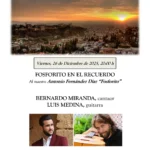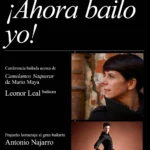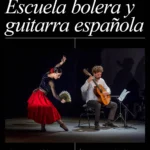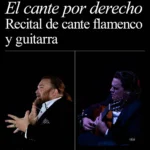Interview by Pablo San Nicasio
Debuts 'Mandala' at the Arteria Coliseum de Madrid
|
“The most important thing in flamenco is the feeling” We caught him at the hotel, just a few short hours from the premiere performance in Madrid of “Mandala”, his intimate contemplative flamenco work. Amador Rojas is a dancer of impulse and emotions. And although he was in a whirlwind of last-minute preparation, Amador had no qualms about cluing us in on his way of seeing things. The man from Los Palacios is always sincere, even out there on stage.
This show you’re debuting in Madrid came into being two years ago. What is Mandala? I do a solo to violin, which is the instrument that most inspires my body, and carries it aloft. Another with guitar, which represents speech…and each one like that. The percussion means the feet, cante is the inspiration, the stories people around me tell me…each one has a well-defined mission. We’re also together for farruca, tangos, alegrías and soleá…but the strong moment is individual, for each one. And I don’t end with bulerías, because it doesn’t fit. Sometimes it’s okay, you can finish like that and everyone’s happy, then you go out for your drink or whatever…but Mandala doesn’t lead to a fiesta finale, it needs something else, you’ll see. “And I don’t end with bulerías, because it doesn’t fit. Sometimes it’s okay, you can finish like that and everyone’s happy, then you go out for your drink or whatever…but Mandala doesn’t lead to a fiesta finale, it needs something else, you’ll see”. You’ve got a group of musicians who know you well. For example, Jesús de Rosario, no newcomer. He wrote all the music for the show, except the introduction, which is Yo-Yo Ma’s music. Jesús is like family for me, we’re on the same wave-length, and we try to make every show different. Jesús, the rest of the musicians and me. That’s what’s behind Mandala, the exclusivity of each instant. In the case of Jesús, his guitar is at the forefront, as it should be. I can’t have disposable guitarists that come and go, because it just wouldn’t be the same. And on this occasion he’s with his brother Quilino, as young as he is, you can’t imagine how the kid plays… The singers are El Pulga and La Tana, and Luis Amador is on percussion, he’s also top of the line.
Why are you using Juan Habichuela III ? His guitar sounds incredible. I spoke to him and we came to an agreement. He’s going to be a star. He plays ten minutes before I go on. And I told him to play whatever he wants, today rondeña, tomorrow soleá…whatever. I think we need to help each other. The fact that today he’s playing guitar isn’t going to take anything away from me, and flamenco comes out ahead. You don’t see that anymore, flamencos don’t help each other, and that’s not right. When we put Frida Kahlo together I also had people from other companies, I was trying to help, it’s not so strange, or at least it shouldn’t be. Talk to me about your beginnings, and the people who saw you grow up. Then I went back to Seville, where I’d broken in at the tablaos and where I met and joined the companies of the Montoya Family, the Galváns, Pilar Távora, Manuela Carrasco…they were my teachers.
“The fact that today he’s playing guitar isn’t going to take anything away from me, and flamenco comes out ahead. You don’t see that anymore, flamencos don’t help each other, and that’s not right.” And Farruco?
That’s quite the tradition, trying one’s luck in Madrid. They took me at Arco de Cuchilleros, and one night Antonio Canales stopped by. Just think…he came and spoke to me, and said he wanted me for his show “Los Grandes del Flamenco”…it was like being born again. That gesture of going to see me at the tablao, him being so important…you don’t see that any more. And that also has to do with what I said about Juan Habichuela in my show. Making room for people who are starting out. In my case, my gratitude towards Canales is even greater, because I’m not the type who’s constantly knocking on doors to get programmed, it’s not my style, my way of being is dancing, not bureaucracy, I’m not prepared to make the rounds looking for work. “They took me at Arco de Cuchilleros, and one night Antonio Canales stopped by. Just think…he came and spoke to me, and said he wanted me for his show “Los Grandes del Flamenco”…it was like being born again. That gesture of going to see me at the tablao, him being so important…you don’t see that any more.”
You don’t seem like a dancer who likes to look to the past.  |
||
Descubre más desde Revista DeFlamenco.com
Suscríbete y recibe las últimas entradas en tu correo electrónico.


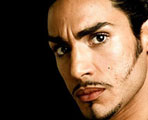


 Until Eva Yerbabuena came along…
Until Eva Yerbabuena came along…
